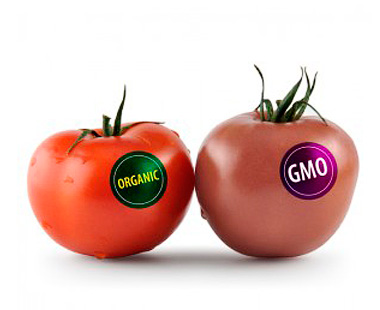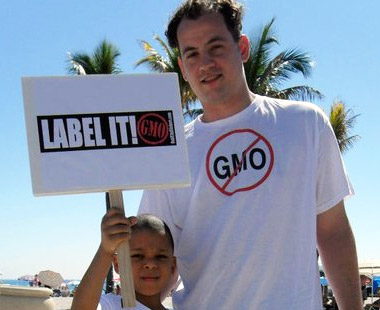 Want to be able to tell the difference between a natural fish and a genetically engineered frankensalmon in the dystopian food future? It looks like you may not be required to live on the crunchy West Coast for that.
Want to be able to tell the difference between a natural fish and a genetically engineered frankensalmon in the dystopian food future? It looks like you may not be required to live on the crunchy West Coast for that.
After California’s GMO-labeling Proposition 37 failed to pass last fall, bills that would require labels for genetically modified food are rolling in Oregon and Washington, and similar initiatives are picking up steam in Minnesota, Missouri, and New Mexico, as well as in Connecticut and Vermont, where GMO-labeling legislation failed to pass last year amid threats of legal action from Monsanto.
New Mexico could be the first state to pass such a law. State Sen. Peter Wirth of Santa Fe, who is sponsoring the legislation, says the bill is aimed at “leveling the playing field” for food actually grown in fields.
Minnesota is home to the headquarters of General Mills, Hormel, Cargill, and Land-O-Lakes, which were all big contributors to the fight against Prop 37, but citizens groups are pushing legislators to pass a label law there too (and the local Fox affiliate covers them pretty appropriately). Meanwhile, Missouri’s legislation would just target genetically modified meat and fish.
The most interesting take on the national GMO label fight comes from the belly of the beast: the International Dairy Foods Association, which just had its annual meeting. From Meat Poultry News:
Connie Tipton, president and chief executive officer of the International Dairy Foods Association, urged food and beverage manufacturers to not rest on their laurels following the defeat of Proposition 37, legislation that would have required the labeling of bioengineered foods sold in California, this past November. Tipton spoke Jan. 28 at the IDFA’s annual Dairy Forum meeting.
“The drumbeat for GMO labeling is as loud as ever and proponents are taking their show on the road,” she said. “They are training their eyes on other states… Moreover, they learned from their mistakes. We anticipate that these new initiatives will be better written with a better ground game to push them forward.”
Tipton added that Walmart’s GMO-labeling efforts were cause for concern.
“It announced this past summer it planned to sell a new crop of genetically modified sweet corn created by Monsanto. Nothing wrong with that, but a lot of us were scratching our heads when Wal-Mart added that it would label the product as containing GMO ingredients – even though the Food and Drug Administration has already said the product is safe. Given Wal-Mart’s size and market share, there are legitimate concerns that its decision on GMO labeling will force other retailers to march in lockstep behind the industry giant.
March in lockstep, eh? This is starting to sound familiar (and fascist), though GMO-labeling fascism seems more appealing than frankenfood-fascism, but maybe that’s just me.
Not to be completely outdone by states with fewer organic quinoa points-of-sale, supporters of California’s Proposition 37 have licked their wounds and swear to be back with another campaign to label GMOs next year.



